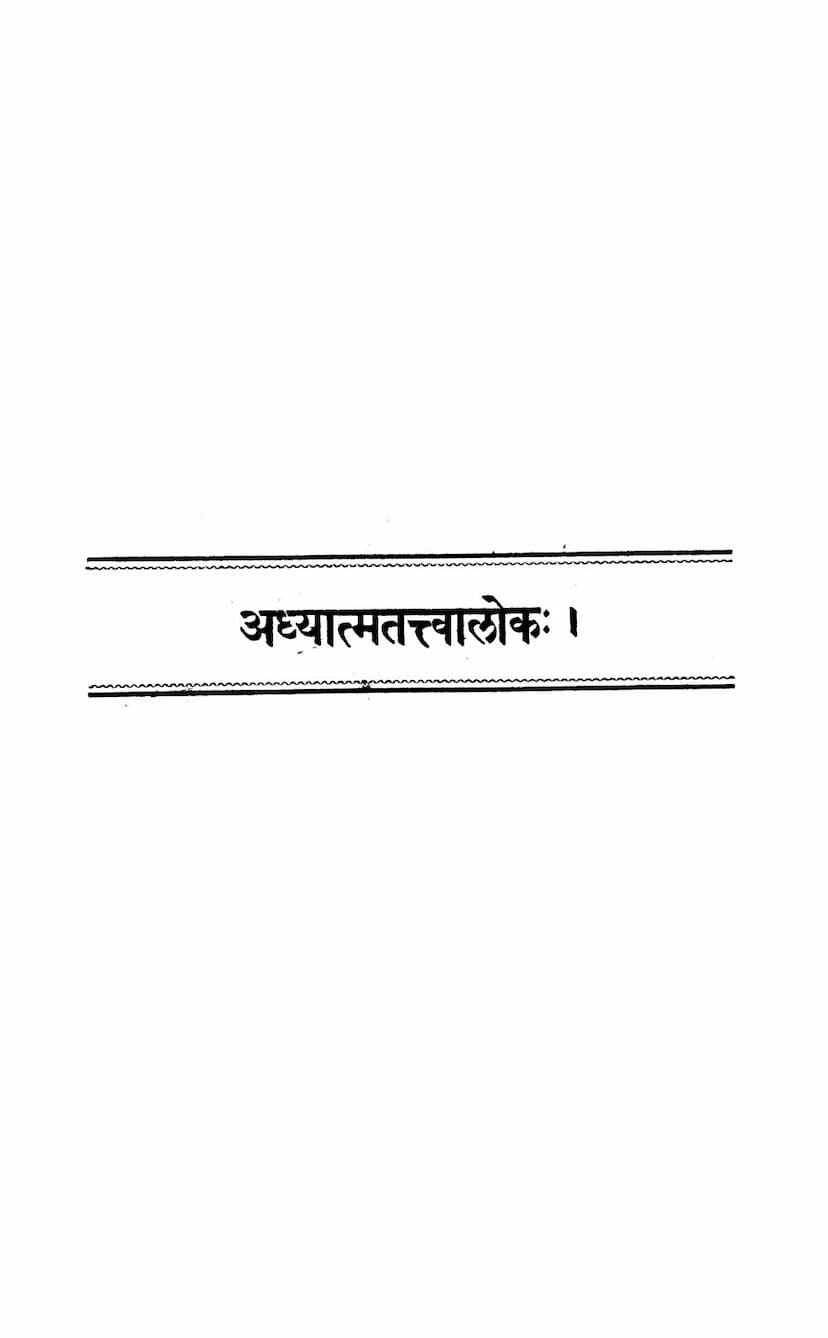Adhyatma Tattvalok
Added to library: September 1, 2025

Summary
The book "Adhyatma Tattvalok" by Motichand Jhaverchand Mehta, published by Abhaychandra Bhagwandas Gandhi, is a comprehensive work on Jain spirituality and philosophy. The text, originally in Sanskrit and authored by Muni Nyayavijaya, was translated into Gujarati and then into English by Motichand Jhaverchand Mehta with the assistance of Professor H. B. Bhide.
The book delves deeply into the core tenets of Jainism, aiming to provide a spiritual light for understanding the self and its relationship with the universe. The author emphasizes that true happiness and liberation (Moksha) are attainable only through spiritual knowledge and the annihilation of Karma. The work highlights the Jain perspective on the nature of the soul (Jiva), its bondage to Karma, and the path to freedom.
Key themes explored include:
- Adhyatma (Spiritual Knowledge): The science of the Self, focusing on understanding the soul, its inherent purity, and its relationship with the universe. It is presented as the ultimate path to liberation.
- Karma: A detailed explanation of the Jain theory of Karma, its types (Ghatiya and Aghatiya), and its role in shaping an individual's destiny and the cycle of rebirth.
- Moksha (Liberation): The ultimate goal of Jainism, described as the state of complete freedom from the bondage of Karma, leading to infinite knowledge, bliss, and power.
- The Nature of God: Jainism views God not as a creator but as the soul that has attained perfect knowledge after destroying all karmic impurities. All liberated souls are considered gods.
- Yoga: The text outlines the eight limbs of Yoga, emphasizing the importance of self-control, meditation, and the purification of the mind and soul to achieve spiritual realization.
- Ahimsa (Non-violence): The principle of non-violence is presented as a fundamental tenet, extending to all living beings, and its practice is crucial for spiritual progress.
- Vows: The book details various vows, including Yamas (restraints) like non-injury, truthfulness, non-stealing, celibacy, and non-covetousness, and Niyamas (observances) like purity, contentment, and austerity.
- Ethical Conduct: The importance of righteous conduct, self-examination, and the cultivation of virtues like compassion, forgiveness, and detachment are highlighted for spiritual growth.
- The Worldly Illusion: The text critiques the transient nature of worldly pleasures and possessions, emphasizing their impermanence and the misery they ultimately bring.
The book aims to guide readers towards self-realization and liberation by illuminating the spiritual path, advocating for detachment from worldly desires, and promoting the cultivation of virtues and self-discipline. The translation into English makes these profound spiritual teachings accessible to a wider audience.